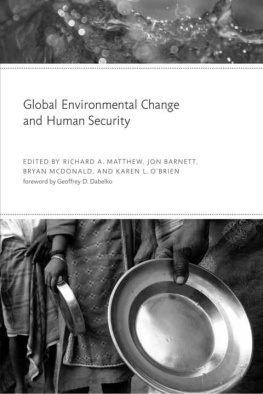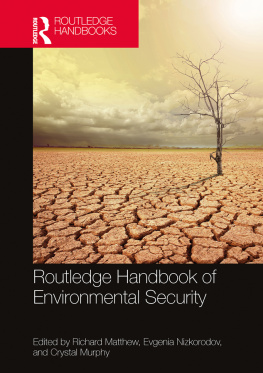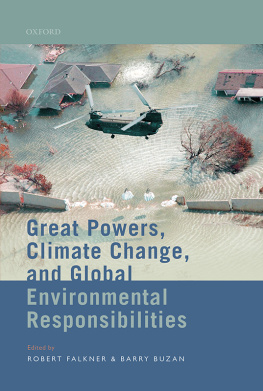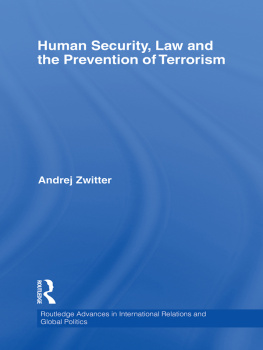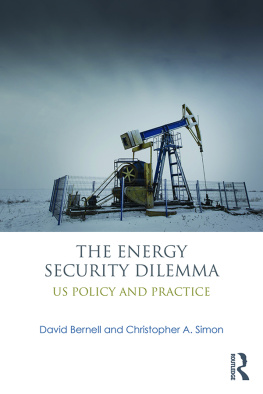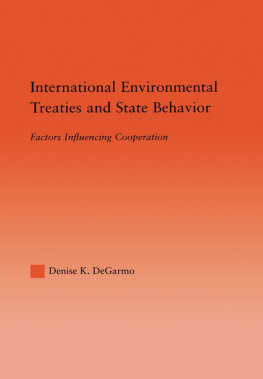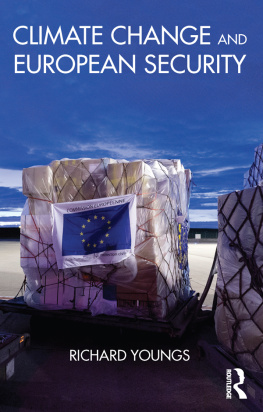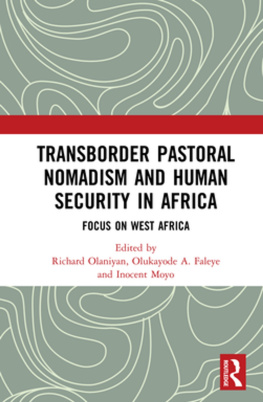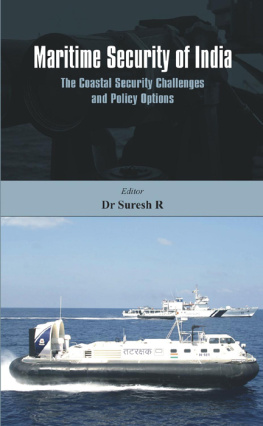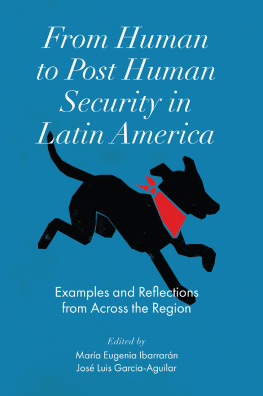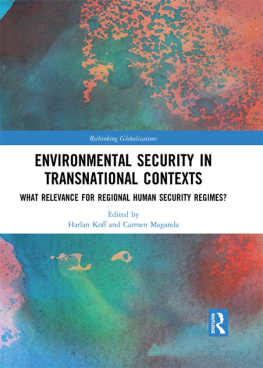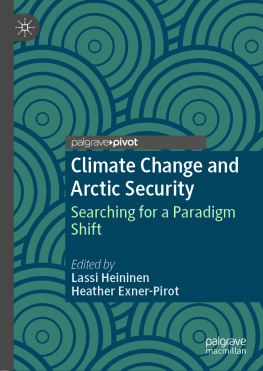Global Environmental Change and Human
Security
Global Environmental Change and Human
Security
Edited by Richard A. Matthew, Jon Barnett, Bryan McDonald, and Karen L. O'Brien



To future generations who will face the challenges of global environmental change and its implications for human security
Contents
ix
Geoffrey D. Dabelko
xi
Jon Barnett, Richard A. Matthew, and Karen L. O'Brien
Mike Brklacich, May Chazan, and Hans-Georg Bohle
Bryan McDonald
Laura Little and Chris Cocklin
Victoria Basolo
Jon Barnett and W. Neil Adger
Richard A. Matthew and Bishnu Raj Upreti
Karen L. O'Brien and Robin M. Leichenko
Marvin S. Soroos
Betsy Hartmann
Heather Goldsworthy
Kwasi Nsiah-Gyabaah
Indra de Soysa, Jennifer Bailey, and Eric Neurnayer
Alexander Lopez
Jon Barnett, Richard A. Matthew, and Karen L. O'Brien
Foreword
Geoffrey D. Dabelko
Say "global environmental change" and the first images typically conjured up are melting ice caps and pin-striped UN negotiators struggling to agree on carbon emissions targets and timetables. Many fine books have been (and will be) written about tackling these problems at the global level. The Earth and those of us living on it need such contributions to deepen our understanding and jumpstart real action to address these challenges.
But add "human security" to global environmental change and you evoke very different images and a very different kind of book, as evidenced by this excellent offering from editors Richard A. Matthew, Jon Barnett, Bryan McDonald, and Karen L. O'Brien. Human security evokes the faces of the world's poor, in rural and urban areas, struggling to earn a living. The name itself places the individual and human wellbeing at center stage, revealing the insufficiency of a state-based approach to security. The connections among the individual, the state, and the globe must be tackled together as environmental change not only impacts people's lives and options but also puts pressure on emerging political systems in many fragile states and conflict-prone parts of the world. The links between natural resources and poverty lead to us to examine larger questions of human vulnerability, the dynamics of conflict and cooperation, and, ultimately, equity and justice.
Human insecurity, conflict and cooperation, and sustainable development form the backbone of this volume, distinguishing it from most of the environmental security literature of the 1990s, which focused on narrower questions of natural resources and high thresholds of conflict. This book's more inclusive approach makes the ideas of environmental security more relevant to the daily lives of the world's poorest and most vulnerable people. For example, the problem of "vulnerability" -a much-used but often misunderstood term is made tangible through the case studies in this volume.
The grounded quality of the research in this book does double duty: it advances intellectual inquiry and expands academic debates on these topics, while at the same time offering practical insights to policymakers and practitioners facing inboxes overflowing with problems directly related to global environmental change and human security. Unlike many scholarly works, this books' chapters are both academically rigorous and policy relevant, as the contributors include many who are actively involved in advising governments, international organizations, non-governmental organizations (NGOs), and civil society.
Global Environmental Change and Human Security is a must-read for members of the environment, development, and security communities. No one reader will find all of its arguments utterly persuasive; I certainly did not. The topics remain highly contested and the research points to productive new avenues for investigation. But this diversity of perspective broadens our inquiries, challenges our assumptions, and pushes scholars and practitioners alike to tackle the pressing problems created by global environmental change and human insecurity.
Acknowledgments
As the Global Environmental Change and Human Security (GECHS) program, founded in 1996, matured as a global research network, it became clear that it was developing a distinctive voice in the field of environmental security. From the outset, the focus on human security attracted researchers interested in issues of vulnerability, poverty and justice, and concerned that simple linkages being forged between environmental change and national security might inspire and justify policy behavior that could deepen global inequality and division, securitize the environment, and lose sight of the victims of unsustainable behaviors and practices of displacement and projection. This volume brings together a number of the scholars associated with the GECHS program and representative of its output.
The editors would like to acknowledge Stephen Lonergan, Mike Brklacich, and Dina Giannikopoulos for important contributions made in the early stages of this project. We would also like to thank the external reviewers for their detailed comments on the first draft of this volume and Clay Morgan at the MIT Press for his invaluable advice and great patience and understanding. The editors are also grateful for considerable editorial support, and in particular the services of Pamela Donohoo, provided through the University of California Irvine's Center for Unconventional Security Affairs. We would also like to thank the International Institute for Sustainable Development for its support during the preparation of this volume.
I
Introduction
1
Global Environmental Change and Human
Security: An Introduction
Jon Barnett, Richard A. Matthew, and Karen L. O'Brien
Introduction
Throughout most of human history, the constraints imposed by local environmental conditions and their natural variability were powerful determinants of the security of individuals and societies: animals, droughts, floods, frosts, pathogens, storms, and other environmental perturbations were significant causes of mortality, morbidity, and social disruption. In today's modern societies, technology, trade, industrialization, the use of fossil fuels, occupational specialization, and higher levels of social organization have all weakened the constraints that local environments place on human security. Since the Industrial Revolution and the consolidation of the modern trading nation-state, there have been thousandfold increases in the production of goods and the use of energy, and hundredfold increases in international trade in goods and services. Over the same period, the global population has increased from one billion to over six billion people, and most people now live longer, consume more, and are better educated than in previous generations.

